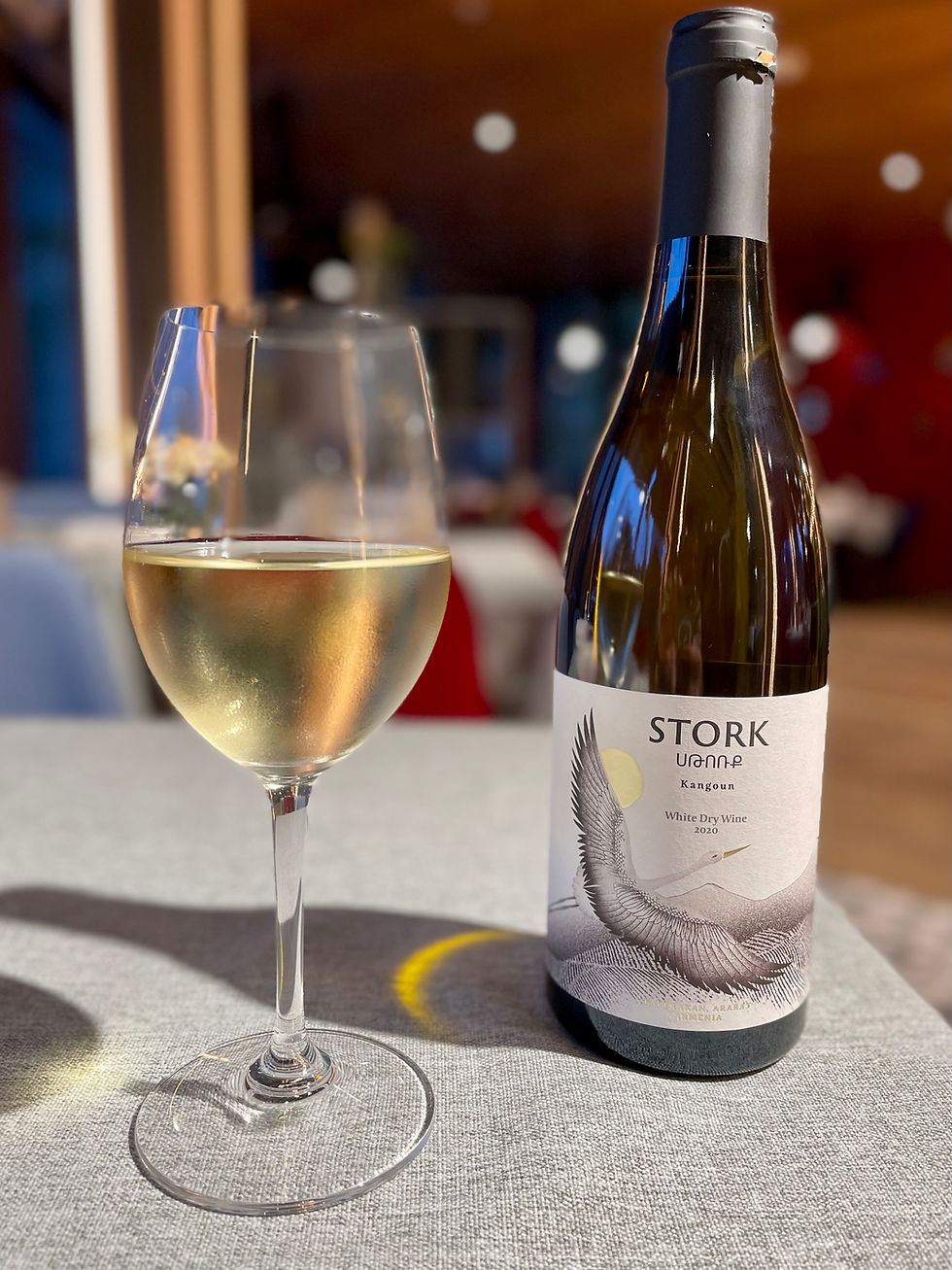Interview with Karen Tsharakyan of Stork Wines
- elainekassabian
- Sep 7, 2021
- 3 min read
For episode 2 of Armenia by the glass podcast, I interviewed Karen Tsharakyan of Stork Wines.

Karen Tsharakyan is the owner and founder of Stork Wines. Karen grew up in Armenia and graduated with a degree in Biology. After earning a scholarship in the early 1990s, Karen went to the USA to study Business Administration. When he returned to Armenia, he worked for 5 to 6 years for a major multinational in Yerevan. Then, in the year 2002, a life-changing opportunity came his way to work in the UK, which involved extensive travel. Many of the countries he travelled to were wine countries such as France, Italy, Argentina, and Chile. Karen said, “It was travelling to these places and seeing how wines are inextricably linked with the culture, lifestyle, and how important the wine industry is for these countries. Eventually, I became passionate about wine, and it became my first beverage of choice. The next logical step was to see if I could get into the business of wine.”
Why Armenia?
Armenia was Karen’s first choice as the place to start his winemaking journey. He approached his decision with his business hat on by analysing costs, barriers to entry, and looking at the local issues. He quickly saw Armenia’s potential, “What Armenia offers is the opportunity to work with really unique local grape varieties and terroirs.”
Why Taperakan
When the time came to buy his vineyard, Karen had several criteria of what he wanted. One was proximity to the capital, Yerevan. He said this “narrowed it down to three winegrowing regions, Ararat, Armavir, and Aragatsotn. They're all in the valley of Mount Ararat. Also, I was looking for a vineyard of a manageable size so that I could get my head around it and not screw up by buying a vineyard and then destroying it.” His search brought him to the village of Taperakan in the Ararat Province, where he purchased a small vineyard of less than a hectare with existing Kangun vines. Kangun is a native grape grown extensively in Armenia. It is used for cognacs and distilling and blending with other local varieties, but now it is increasingly used to produce some exciting white wines.
The Vines
Existing vines in the vineyard were also part of Karen’s criteria. He said, “I ruled out instantly buying land and planting vines because that's when you’re looking at three to five years.” Despite having existing vines on his vineyard, Karen had to deal with the condition of the vines, some of them being around 30 years old. He described the vineyard as having been managed to maximise yield using fertiliser and with little pruning. Karen says his approach is very different, "Since taking over, we embarked on a program of improving the quality of the vineyard, pruning it in a certain way, reducing the yield, and improving the quality of the soil.”
Dealing with harsh conditions
Winters are harsh in Armenia, and in some years, it’s known for temperatures to drop to -30c. To protect the vines, Karen buries them from November until February. However, this method is expensive with no certainty of it working, especially in very cold winters. Climate change has also impacted Armenia, with the weather becoming unpredictable.
Additional challenges
Not only did Armenia have to deal with the pandemic, but it also had to fight a terrible war. Both the pandemic and the war caused a shortage of labour during the harvest season of 2020. Demand for labour is high during the harvest season as the Ararat Province is a horticultural region. The last harvest was a learning curve for Karen. He said, “We ended up spending a lot of time in the vineyards and doing it ourselves. It’s not a very good idea, but we've learnt a lot. Our neighbours would help us occasionally, which was very kind. My friends would come and help me with tying the vines, pruning, and other things”.
For this year's harvest, Karen is taking a different approach. He has outsourced the harvesting and hired a consultant to improve overall quality control.
The future
Despite the difficulties of last year, Karen has managed to produce a 2020 vintage. He has collaborated with Wineworks, and they are about to bottle the wine. Not only is he bottling his wine, but Karen is making further investments into the business. He is building his winery in the Aragatsotn province. “If all goes well, we'll have everything in place at our winery sometime in September, and we'll be ready to press 2021 vintage in house. And that's where we are at the moment”.
You can listen to the episode on Apple Podcasts, Spotify or by clicking this link.
For more information about Stork wines, go to the Facebook page or the website.




Comments